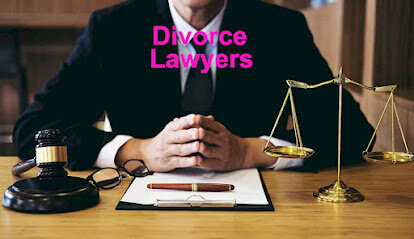Best Foreclosure Lawyers in New York
Share your needs with us, get contacted by law firms.
Free. Takes 2 min.
Free Guide to Hiring a Real Estate Lawyer
Or refine your search by selecting a city:
List of the best lawyers in New York, United States
About Foreclosure Law in New York, United States
Foreclosure is a legal process that allows a lender to recover the balance of a loan from a borrower who has stopped making payments by forcing the sale of the property used as collateral. In New York, foreclosure proceedings are judicial, which means they go through the court system. This process can be complex and time-consuming, often taking several months or even years to complete. Understanding the steps, rights, and responsibilities involved is important for homeowners, lenders, and anyone affected by a foreclosure action.
Why You May Need a Lawyer
There are many situations where legal help is important in foreclosure cases. Homeowners facing foreclosure may need a lawyer to review the legal documents, defend against improper procedures, negotiate with lenders, or help apply for loss mitigation options like loan modifications. A lawyer can help you understand your rights and any defenses you might have, such as improper service or violations of consumer protection laws. Investors, heirs, and other parties with an interest in a property subject to foreclosure also often need advice to protect their interests or clarify their legal position. Since the stakes are high and the procedures can be complex, professional legal guidance can make a significant difference in the outcome.
Local Laws Overview
Foreclosure in New York is governed by both state law and local court rules. Here are some key aspects:
- New York uses judicial foreclosure, which requires the lender to file a lawsuit in court to foreclose on a property.
- Homeowners must be served with a foreclosure summons and complaint, starting a legal process that allows them to respond.
- New York law requires a settlement conference for most residential foreclosures, giving homeowners the chance to discuss alternatives with the lender before the case proceeds.
- Strict timelines and notice requirements exist, including pre-foreclosure notices providing at least 90 days' warning before action is filed.
- Defenses to foreclosure may include improper notice, lack of standing by the lender, issues with the mortgage’s assignment, or violations of consumer protection laws.
- After foreclosure, homeowners have limited rights of redemption and face potential liability for a deficiency judgment if the sale does not cover the amount owed.
Frequently Asked Questions
What is foreclosure and how does it work in New York?
Foreclosure is the legal process where a lender seeks to recover the unpaid balance of a loan by selling the collateral property. In New York, this process must go through the courts, starting with the lender filing a lawsuit against the homeowner.
How long does foreclosure take in New York?
The foreclosure process in New York can be lengthy, typically taking anywhere from 12 to 36 months, sometimes longer, depending on the complexity of the case and court schedules.
What is a settlement conference?
A settlement conference is a court-mandated meeting between the lender and homeowner to explore alternatives to foreclosure, such as loan modification or repayment plans, before the legal case moves forward.
Can I stop a foreclosure once it has started?
Yes, options may include reinstating the loan, reaching a settlement with the lender, filing for bankruptcy, or presenting legal defenses in court. Prompt legal advice is important to preserve your rights.
What notice must I receive before foreclosure can start?
Under New York law, you must receive a 90-day pre-foreclosure notice before the lender files a foreclosure action. You will also receive a summons and complaint when the lawsuit is filed.
Do I have to move out immediately when foreclosure is filed?
No, filing a foreclosure starts the legal process but does not require you to leave your home right away. You have a right to stay until the court process is complete and the property is sold.
What defenses can I raise in a foreclosure case?
Possible defenses include improper notice, errors in paperwork, lack of standing by the lender, fraud, predatory lending, or issues with the mortgage’s assignment.
Is there any way to get help with my mortgage or stop foreclosure?
Homeowners may qualify for loss mitigation options like loan modification, forbearance, repayment plans, or short sales. Seeking help from a HUD-approved counselor or attorney can identify the best option.
What happens after the foreclosure sale?
If the property is sold at a foreclosure auction, the new owner may start eviction proceedings if you remain in the home. Additionally, you may be liable for any remaining balance on your loan if the sale does not cover the whole debt, unless the deficiency is waived.
Can bankruptcy stop or delay foreclosure?
Filing for bankruptcy can temporarily stop the foreclosure process through an automatic stay. Depending on the type of bankruptcy filed, you may be able to catch up on missed payments or pursue alternative solutions.
Additional Resources
For those seeking information or support, the following resources can be helpful:
- New York State Unified Court System - Foreclosure and Consumer Resources
- New York State Attorney General’s Office - Homeowner Protection Program (HOPP)
- U.S. Department of Housing and Urban Development (HUD) - Approved Housing Counselors
- New York Legal Assistance Group (NYLAG) - Foreclosure Prevention Unit
- Legal Aid Society - Housing Law Practice
Next Steps
If you are facing foreclosure or have questions about your legal rights, it is important to act quickly. Consider gathering all related documents, reviewing any notices or court paperwork you have received, and making a list of questions or concerns. You may contact a qualified New York foreclosure attorney, a local legal aid organization, or a HUD-certified housing counselor for personalized support and guidance. Early action can help protect your home and your financial future.
Lawzana helps you find the best lawyers and law firms in New York through a curated and pre-screened list of qualified legal professionals. Our platform offers rankings and detailed profiles of attorneys and law firms, allowing you to compare based on practice areas, including Foreclosure, experience, and client feedback.
Each profile includes a description of the firm's areas of practice, client reviews, team members and partners, year of establishment, spoken languages, office locations, contact information, social media presence, and any published articles or resources. Most firms on our platform speak English and are experienced in both local and international legal matters.
Get a quote from top-rated law firms in New York, United States — quickly, securely, and without unnecessary hassle.
Disclaimer:
The information provided on this page is for general informational purposes only and does not constitute legal advice. While we strive to ensure the accuracy and relevance of the content, legal information may change over time, and interpretations of the law can vary. You should always consult with a qualified legal professional for advice specific to your situation.
We disclaim all liability for actions taken or not taken based on the content of this page. If you believe any information is incorrect or outdated, please contact us, and we will review and update it where appropriate.
Browse foreclosure law firms by city in New York
Refine your search by selecting a city.
















